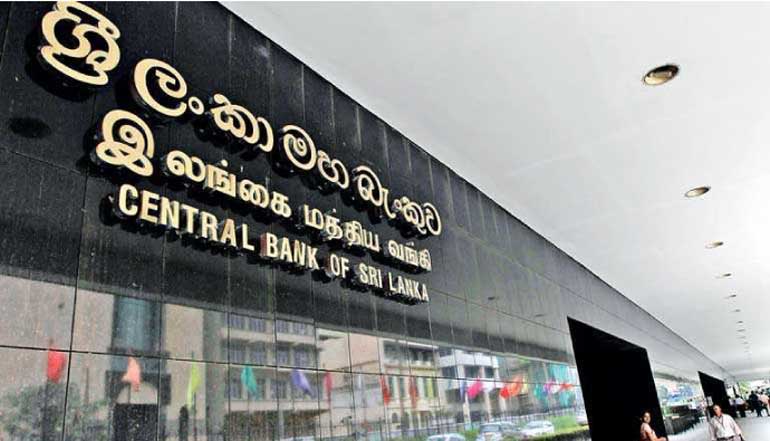Tuesday Feb 17, 2026
Tuesday Feb 17, 2026
Thursday, 26 August 2021 00:24 - - {{hitsCtrl.values.hits}}

The Central Bank has directed that banks can offer only a maximum of 5% Annual Effective Rate (AER) on all foreign currency deposits with effect from 24 August.
The rule is applicable to all new Foreign Currency (FCY) deposits, existing FCY savings deposits and at the renewal of FCY term deposits.
The directive was issued under Section 104(1)(a) of the Monetary Law Act No. 58 of 1949, as amended.
The order on maximum interest rates to be paid in respect of foreign currency deposit products of licensed commercial banks and the National Savings Bank was following the Monetary Board observing anomalies in the interest rates offered and paid by licensed commercial banks on the rupee and foreign currency deposits.
In the case of Special Deposit Accounts in FCY, the additional interest rate that can be offered or paid will be over and above 5%.
The banks are required to submit details of the interest rates offered on FCY deposit products in accordance with the weekly return on 'Rates of Interest’ and make arrangements to inform and display the interest rates offered to customers on FCY deposit products.
The decision to impose a cap was first announced in principle by Central Bank Governor Prof. W.D. Lakshman last week during the post-monetary policy review meeting media briefing.
He said limited conversion by exporters and the advancing of imports together with some speculative activity, prompted by anomalies between interest rates on the rupee and foreign currency products in the financial market, exerted undue pressure on the exchange rate in the domestic market.
Last Wednesday, the Monetary Board decided to increase the Standing Deposit Facility Rate (SDFR) and the Standing Lending Facility Rate (SLFR) by 50 basis points (bps) each, to 5% and 6%, respectively. This would also result in the Bank Rate, which is linked to the SLFR with a margin of +300 basis points, automatically adjusting to 9%.
To induce a faster response of the market to these adjustments, the Monetary Board also decided to increase the Statutory Reserve Ratio (SRR) applicable on all rupee deposit liabilities of licensed commercial banks (LCBs) by two percentage points to 4%, with effect from the reserve maintenance period starting on 1 September.
The Monetary Board said it expects these moves to iron out the prevailing imbalances in the domestic financial markets and the external sector of the economy, while pre-empting the build-up of any excessive inflationary pressures over the medium-term, thereby supporting greater macroeconomic stability.
The Ceylon Chamber of Commerce, when it called on the new Finance Minister Basil Rajapaksa recently, suggested a small increase in local interest rates of about 25 to 50 basis points.
“This will help reduce the interest rate arbitrage between interest rates for dollar fixed deposit rates and local rupee deposit rates,” the Chamber said.